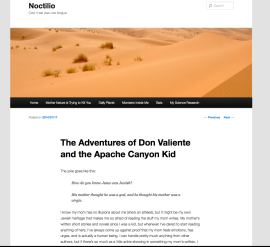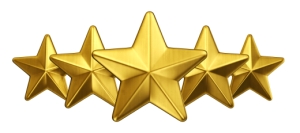
Alison deLuca, steampunking
One of the pleasures I have enjoyed in participating in the on-line writing community in the past few years has been meeting dozens of writers from all over the world through the Amazon Breakthrough Novel Award (ABNA) forum, on authonomy, and in other venues. Many of them have launched their literary careers in an era when self-publishing was a viable option, which it was not for most established writers when they first started out. The new-writer experience is very different today than it was 30 years ago when I began, and that has both its drawbacks and its advantages, I think.
My own entry into self-publishing has been greatly enriched by this community: we’ve learned the ropes together. I decided it would be fun to profile a couple of these promising and industrious emerging writers on my blog so that you could read about the lessons they have learned, and the great progress they have made, in their still relatively new careers as authors. In discussing this blog idea in one of the FaceBook groups I belong to, the thought came to us that having one of these newer (and definitely younger) writers than I interview another might be the way to go. Therefore, it is with great pleasure that I present for your reading pleasure a series of incisive and intriguing questions posed by Jeffrey Getzin of Alison DeLuca – and her equally fascinating responses.
Alison’s bio (from her very thorough press kit: kudos on that Alison. I’m going to use it as a model for my own!) tells me that she is the author of several steampunk and urban fantasy books. She was born in Arizona and has also lived in Pennsylvania, Illinois, Mexico, Ireland, and Spain. Currently, she says, she “wrestles words and laundry” in New Jersey. You can connect with Alison on her author page on FaceBook here, and read her Fresh Pot of Tea blog here.
Jeffrey Getzin, whose first novel – a fantasy – is entitled Prince of Bryanae, has a website here. Next time, he will be interviewed by Alison. Stay tuned….
_______________________
JG: Tell us about your first book The Night Watchman Express. What’s it about? What inspired you to write it?
Alison: First, thanks so much for the opportunity, Mary, and for the amazing interview questions, Jeff.
Nightwatchman is a steampunk novel set in Edwardian England. It’s the story of a young orphan named Miriam. Her guardians want to control her wealth, and their son, Simon, clashes at once with her. When some real villains enter the picture, Miriam and Simon have to find a way to forge an alliance. Along the way they encounter a quantum typewriter, a mysterious governess, and loads of adventures.
I was inspired by the music of Angelique Kidjo, a wonderful singer from Benin in Africa. Her songs helped me to picture the character of Mana, a governess from the islands.
It was difficult to write the scenes where Mana was confronted by the attitudes of Edwardian society. I had to make those interactions realistic but never demeaning. In fact, I couldn’t have done it without Mana’s inner strength, intelligence, and inherent poise. A lot of that came from Kidjo’s lyrics and the singer’s own beautiful personality.
JG: The Night Watchman Express has gone through several iterations. Why all the different versions, and why is it so hard to find now?
Alison: When the book was first published, I was very naïve. It was only after I wrote the second and third books in my trilogy that I realized I needed to go through several rounds of beta reads as well as several professional edits. It’s a good thing that publishing has become more fluid with the growing popularity of ebooks and Indie authors, and thus I have a second chance to present my work.
I grew more and more unsatisfied with TNWE, so I decided to do a complete structural and line edit on the book. It, along with books two and three in the series (Devil’s Kitchen and The Lamplighter’s Special) will be available again this summer.
JG: Rumor has it that The Night Watchman Express is part of a planned trilogy. Can you confirm this? If so, what kind of story arc do you have in mind?
Alison: It is actually the first of four books called The Crown Phoenix Series. The first three are written, and I am in the middle of the fourth, The South Sea Bubble.
The relationship between Miriam and Simon is the Bosun Higgs particle that connects the books, as well as the struggle between Mana and Barbara, my beautiful villainess. Those women are both strong characters, and their confrontations cause a lot more adventures for Miriam and Simon.
JG: Do you have any other projects planned?
Alison: I do! I’m also in the middle of a dieselpunk book. Steampunk’s tech is driven by steam, so dieselpunk has working engines and more advanced engineering. It was a great deal of fun doing research for that; I got to dig out my father-in-law’s old engineering and mechanics manuals.
The title is The Gramophone Society, and it is about a modern girl who finds one day that the steps to her attic lead downstairs, not up. She descends and is drawn into the world of WWII, when children were sent out of London to the country to get away from the Blitz. Of course, lots of adventure ensues. Yes, I’m an adventure freak.
JG: How long have you been writing? If you could go back in time and visit yourself when you had just started writing, what advice would you give yourself?
Alison: “Hey, you! Thirteen-year-old self! Do you really have to keep writing a love story about yourself and Donny Osmond?”
Writing is a journey, a very special voyage filled with moments of despair, frustration, and also brilliant happiness. I spent one summer on a very long fantasy novel. Now I see that what I wrote is absolute tripe, but it did teach me that I could sit down and complete a book.
JG: What do you do for fun other than writing?
Alison: As well as being a mother and a wife, I’m a hopeless reading addict, and I love to cook and garden. Blogging has become a passion, and at times I like to get my Xtreme on and go skiing.
JG: Do you have a “day job”? If you could write for a living, would you?
Alison: My day job is being a Stay At Home Mom. I’m incredibly lucky that my husband supports my writing career. The house suffers as a result, but my man is gallant enough to put up with it. At least, he doesn’t complain too bitterly.
I’d love to write and edit for a living. As my daughter becomes more self-sufficient, I hope to do exactly that. The changing nature of publishing gives people like me opportunities I couldn’t have dreamed I could access in the past, so I am very blessed to be able to do what I love every day.
As an example, I never knew how much I loved to edit. I’ve discovered that I adore to assist in the process of a novel’s birth. Some of my edits have been for writers who have incredibly original voices, such as Shaun Allan. It’s been my good fortune to work with works like Sin and see those pieces evolve.
JG: Many authors say that in order to be a good writer, you must first be a good reader. What have you been reading recently? What’s next on your list?
Alison: How did I never discover Nick Harkaway before? I just read Angelmaker, and of course with all the clockworks in the plot it has me hooked. I finished the luminous Losing Beauty last week, and The Last Guardian is next on my Kindle. I’m the kind of person who has an upstairs and a downstairs book, and if I start to read a good book I’m deaf to all that is going on around me.
JG: Flash Fiction Challenge: Write a very short story involving: a lighthouse, a telegraph, and a beach ball.
Alison: This will be fun, especially since I’ve just researched telegraphs for The South Sea Bubble. Here goes:
Conditioned Response*
We crouched by the screen door. There it was again, a flash from the direction of the Barnegat Light.
“It’s not the lighthouse.” My brother raised a cracked pair of opera glasses to his eyes to check.
“Optical telegraph,” I said.
The last time we had seen it, five years earlier, our stepfather was at the top of the stairs. That blink from his old Maglite meant we had to climb up and be quick about it. The severity of the punishments were directly related to the amount of time it took us to climb to the top.
“It’s not him, at least.” He bit off the words with a long cough that was rich with phlegm.
“We don’t have to do anything about it. We can just stay here.” Even as I spoke I knew we would go to the lighthouse. We were dogs that salivated over the ring of a bell. Both of us had been schooled to come when the Maglite appeared.
I stood and walked to my old bike. My brother hopped in the basket. “You’re a lot heavier now,” I complained. “Jesus!”
“Just shut up and pedal.”
The house was at the tail end of the beach. If we turned and went in the opposite direction, we would pass millionaires’ houses, complete with pool boys and marinas. Our own home was an abandoned motel that had shuttered its doors at the end of the seventies.
My heart pounded as I stood on the bike to get us up to Barnegat. My brother took out a crumpled pack of cigarettes from his shirt pocket. “Don’t even think about it,” I said.
Two flashes. Each one saw a rusty bike draw closer to the lighthouse. Centuries earlier they would have spurred an answering response from another lighthouse, and so on down the coast – a system of communication called the optical telegraph.
I kicked the stand down. My brother climbed out of the basket and stretched. “Remember the pick?” he asked.
I shuddered. Our stepfather used to illustrate what could happen to us with a beach ball and an icepick. I hated my brother for remembering and for making me remember.
“No guards on duty. Weird.” I felt for the handle, even though I knew the local historical society would have locked the door.
The knob turned easily in my hand. My brother coughed again and spat. “It can’t be him.” It was impossible for our stepfather to be at the top of those steps. Nobody knew that better than we did.
“Why did we come?” I asked. I pictured the red coast hidden inside our skulls. The light we had seen had its answer, and we were helpless against that message.
“Wait.” He put a hand out. I could see how his fingers trembled in the dark entrails of the lighthouse.
Thump. Thump. Thump. It was a muffled sound that grew louder.
The fear in my throat tasted like spoiled hamburger. “What!” I screamed. “What!”
Something appeared at the bottom of the steps. A beach ball.
_____________
* © Alison DeLuca
 As a thank you to the subscribers of The Militant Writer, as well as my many editing and grantwriting clients, fellow writers and friends, please accept this offer of a deep discount of The Adventures of Don Valiente and the Apache Canyon Kid, at Amazon, for a limited time only.
As a thank you to the subscribers of The Militant Writer, as well as my many editing and grantwriting clients, fellow writers and friends, please accept this offer of a deep discount of The Adventures of Don Valiente and the Apache Canyon Kid, at Amazon, for a limited time only.








You must be logged in to post a comment.